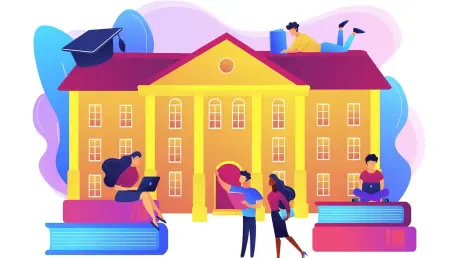The Trump administration’s decision to revoke Harvard University’s Student and Exchange Visitor Program (SEVP) certification left educational institutions reeling, as thousands of international students faced uncertainty regarding their academic futures. This bold move marks a significant step in an escalating conflict between the Trump administration and one of the most prestigious universities globally. Harvard’s reaction through legal challenges emphasizes the broader struggle of maintaining academic autonomy against governmental policies deemed intrusive by critics.
Understanding the Context
At Harvard, international students make up a significant portion of the student body, enriching campus diversity and contributing to wholesome educational experiences. They are not merely participants but integral to the university’s global profile, fostering cross-cultural understanding and collaboration. In revoking Harvard’s SEVP certification, the Trump administration targeted over 7,000 international students, potentially hindering their academic journeys and threatening the institution’s ability to operate freely.
Historical Tensions Resurface
Harvard’s predicament is not isolated but rather part of a historical pattern of friction between educational freedom and government intervention in the United States. Harvard’s leading role in academia, combined with its global influence, makes it a target for policy battles that risk stifling innovation and academic freedom. The university’s longstanding contributions to global education cannot be overstated, as it continuously pushes the boundaries of research and critical thought. Past governmental attempts to dictate institutional operations have been largely resisted, underscoring the importance of preserving autonomy in higher education.
Trump Administration’s Directives
The Trump administration’s actions against Harvard included more than just SEVP certification revocation. Accusations of antisemitic behaviors and inappropriate affiliations with foreign entities like the Chinese Communist Party added complexity to the situation. Official statements claimed these measures were necessary to improve accountability and address perceived university failures to combat hate crimes and institutional discrimination. Such actions spurred concerns about the potential implications for institutions across the country, prompting many to question the boundaries of governmental reach into academic governance.
Advocates and Opponents Speak Out
Representative Jamie Raskin, backed by fellow Harvard alumni and other advocates of educational autonomy, has vocally opposed the administration’s actions. He argues that targeting Harvard compromises constitutional rights and the institution’s independence. The White House’s perspective, rooted in concerns over national security, frames the decision as a necessary action against what it sees as systemic failings within Harvard. Relevant studies illustrate the delicate balance needed to maintain institutional independence while ensuring compliance with national standards. Meanwhile, anecdotal reports from affected students and faculty paint a picture of anxiety and disruption as they grapple with the uncertainty surrounding their academic pursuits.
Charting the Way Forward
Moving forward, universities must explore strategies that protect their autonomy amidst political pressures. Legal frameworks offer a starting point for defending institutional independence, with litigation and advocacy playing crucial roles in maintaining academic freedom. The academic community, alongside legal entities, needs to consider avenues for securing greater autonomy without compromising on crucial national interests. Fostering dialogue between educational institutions and policymakers could pave the way for solutions that respect both autonomy and necessary oversight, striking a balance that benefits all stakeholders.
The recent conflicts highlighted by the tensions between Harvard and the Trump administration offer valuable lessons for safeguarding educational independence. Stakeholders must now consider innovative approaches that combine legal, academic, and policy strategies to ensure academic institutions operate without undue governmental interference. As challenges continue to evolve, the dialogue between educational institutions and government entities has the potential to forge pathways for cooperative resolution instead of confrontational discord.









